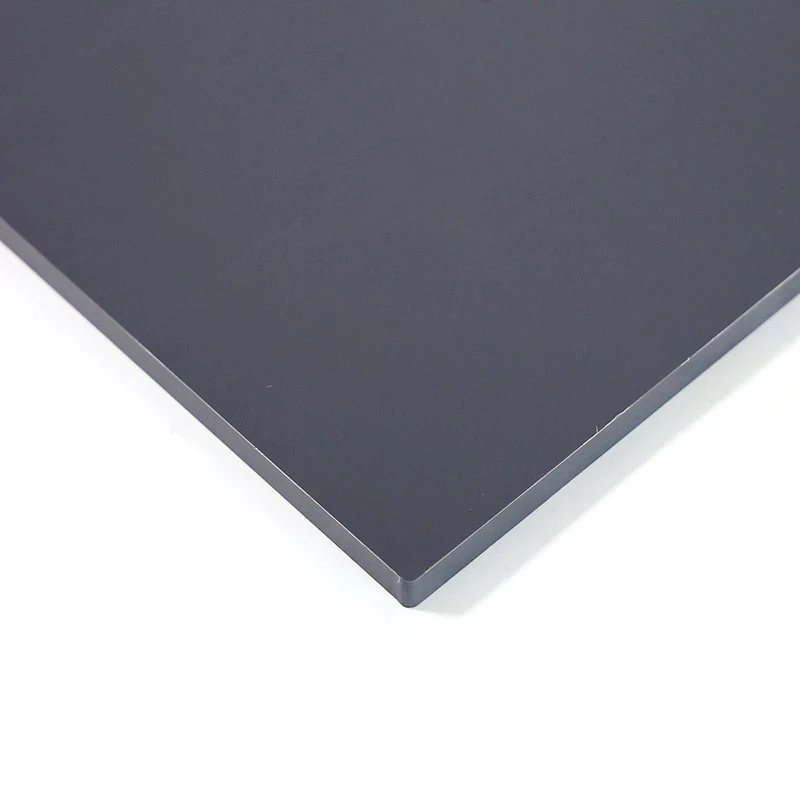Dhj . 11, 2024 09:30 Back to list
Choosing the Right PVC Drain Pipe for Your Plumbing Needs
Understanding PVC Drain Pipes A Comprehensive Guide
PVC drain pipes have become a popular choice in plumbing and drainage systems due to their durability, cost-effectiveness, and resistance to corrosion. In this article, we will explore the characteristics, advantages, and applications of PVC drain pipes, along with guidance on installation and maintenance.
What is PVC Drain Pipe?
PVC, short for Polyvinyl Chloride, is a type of plastic that is widely used in the construction industry. PVC drain pipes are specifically designed for drainage purposes, commonly used to convey wastewater away from residential and commercial properties. They come in various diameters, making them suitable for different applications, from small household sinks to large industrial drainage systems.
Advantages of PVC Drain Pipes
1. Durability PVC drain pipes are known for their exceptional strength and long lifespan. They are not susceptible to rust or corrosion, ensuring that they remain functional for many years. This makes them an ideal choice for both new constructions and repairs.
2. Cost-Effective Compared to traditional materials like metal or concrete, PVC pipes are relatively inexpensive. Their lightweight nature reduces transportation costs and makes them easier to handle during installation.
3. Easy Installation PVC drain pipes are designed for quick and straightforward installation. They can be easily cut to size and joined using solvent cement, allowing for a tight seal that prevents leaks.
4. Chemical Resistance PVC is resistant to a wide range of chemicals, making it suitable for various applications, including sewage and industrial waste drainage. This resistance ensures that the pipes do not degrade when exposed to harsh substances.
5. Low Maintenance Once installed, PVC drain pipes require minimal maintenance. They are less likely to clog compared to other materials, and cleaning is generally easy due to the smooth interior surface.
Applications of PVC Drain Pipes
PVC drain pipes are used in various applications
pvc drain pipe

- Residential Plumbing They are commonly used for waste drainage from sinks, showers, and toilets in homes.
- Stormwater Management In many areas, PVC pipes are utilized in stormwater systems to manage runoff and prevent flooding.
- Industrial Applications PVC pipes are also employed in various industrial settings to transport wastewater and chemicals safely.
- Agricultural Use In agriculture, PVC drain pipes can help with irrigation systems and field drainage.
Installation Tips
1. Plan the Layout Before installation, plan the layout of the drainage system to ensure proper water flow and avoid any unnecessary bends.
2. Use the Right Size Select the appropriate diameter of PVC pipes based on the volume of water to be drained. Larger diameters are necessary for areas with heavy drainage needs.
3. Ensure Proper Slope When laying the pipes, ensure they have a slight slope (usually 1-2%) to facilitate gravity drainage.
4. Secure Connections Use proper sealing methods, such as solvent cement, to secure joints and prevent leaks.
5. Inspect Regularly While PVC pipes require low maintenance, regular inspections can help identify potential issues before they become major problems.
Conclusion
PVC drain pipes offer a reliable and efficient solution for various drainage needs, both residential and industrial. Their numerous advantages, including durability, cost-effectiveness, and ease of installation, make them a preferred choice in modern plumbing systems. By understanding their features and following proper installation practices, homeowners and builders can ensure a long-lasting and efficient drainage system.
-
HDPE Natural Sheet: Durable, Food-Grade & Versatile Plastic Solutions
NewsAug.27,2025
-
Durable Glossy PVC Rigid Sheet | Premium High-Shine Panels
NewsAug.26,2025
-
Durable PP Rigid Sheet: Lightweight, Chemical Resistant Solutions
NewsAug.21,2025
-
PVC Grey Sheet for Extraction: Chemical Resistant & Durable
NewsAug.19,2025
-
Durable PVC Pipe Fittings for Plumbing & Irrigation Needs
NewsAug.18,2025
-
HDPE Steel Belt Reinforced Spiral Corrugated Pipe | High Strength
NewsAug.17,2025

